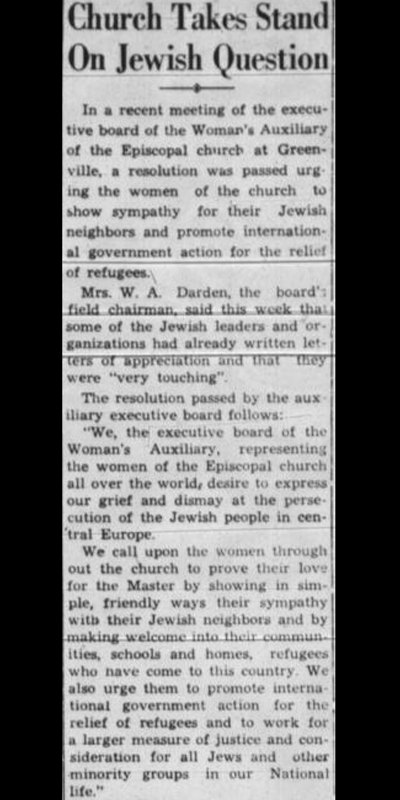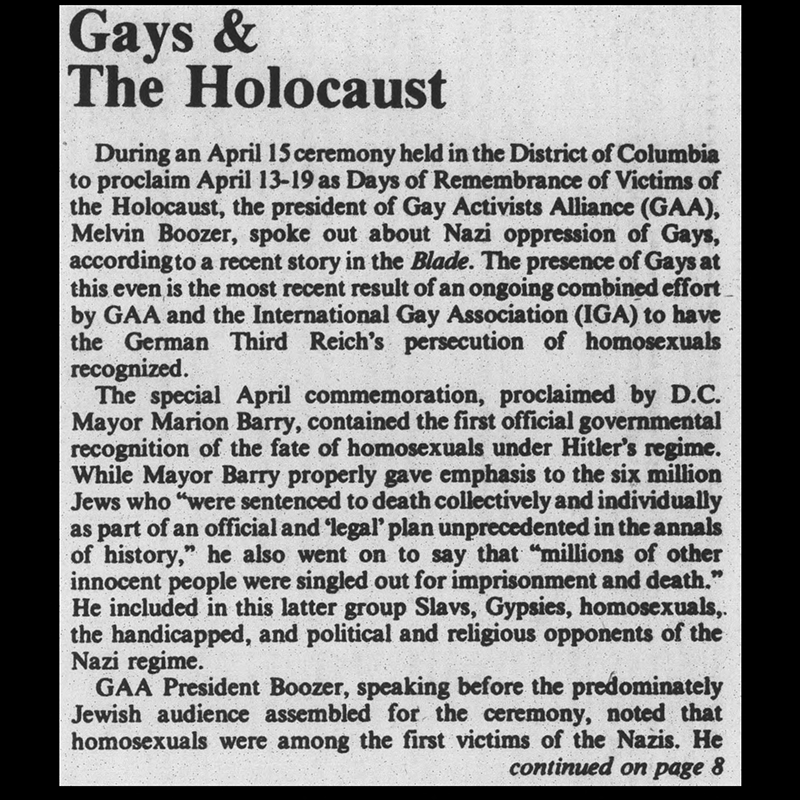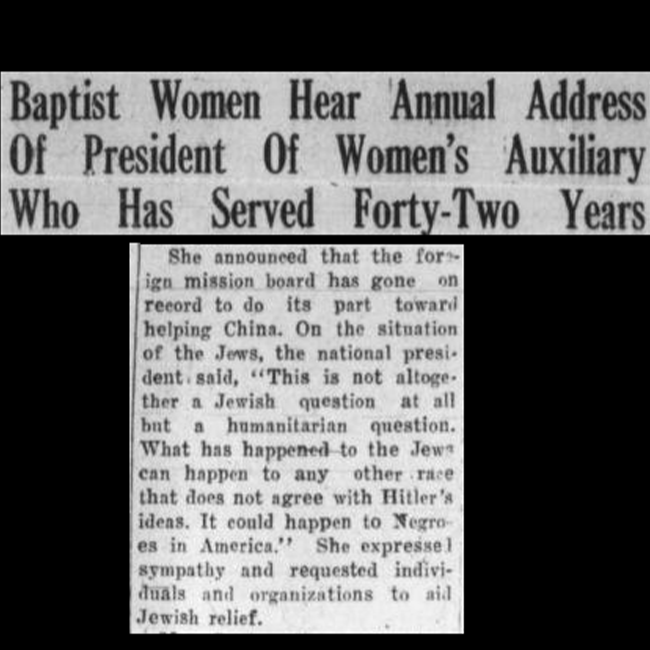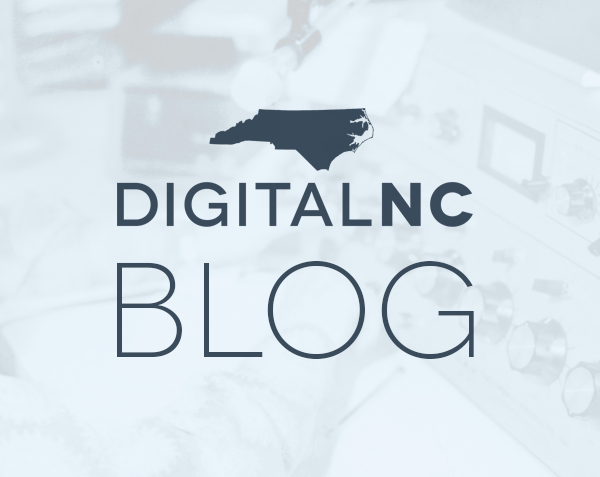
This requested primary source set gathers reactions to the Holocaust and the oppressive and genocidal actions of Nazi Germany. Collected from newspapers across the state of North Carolina, these primary sources display a variety of reactions, ranging from condemnation to temporarily withholding judgement to thinly veiled support for the Nazi party. Some articles reflect on the United States’ own struggles with fascism and white supremacy, giving a warning to their readers of how easy it would be to escalate many Americans into violent action, especially with this country’s violent history. The discussion questions based on the set go from a basic comprehension of understanding the viewpoints represented to a deeper dive into historical and contextual analysis, directing us to connect these historical events to the present. Below are highlights from some of the newspapers included in the set.

This excerpt from the Bryson City Times highlights the pro-Nazi attitudes of U.S. Senator Robert Reynolds, shown by his rhetorical alignment with and support from Nazis in the U.S. and abroad. Reynolds, from Buncombe County, NC, had his speeches and stances endorsed by the German American Bund, a U.S. based Nazi organization. This article, originally from “The Hour,” was reprinted in The Charlotte News and then in the Bryson City Times. Here, we see both the sentiments of some North Carolinians that not only accepted but supported antisemitism, as well as the perspective of bringing these beliefs and those that hold them to light.
The Front Page (1979-2006) was an openly LGBTQ+ newspaper based out of Raleigh, NC. This article focuses on the denial and invisibilizing of gay and trans victims of the Holocaust and the global push to have the survivors recognized. Through this, we can see the perspective of groups of different identities that were persecuted by the Nazis working to have the scale of violence acknowledged, as well as how people in North Carolina felt connected to and supported these efforts. This article was published in 1980; the section of Germany’s penal code that the Nazis used and expanded remained in tact until 1994, and the LGBTQ+ vistims of the Holocaust were not recognized or given reparations until 2017.


In this issue of the Carolina Times, a historically Black newspaper published in Durham, NC, the paper covered an address by Mrs. S.W. Layten, the president of the women’s auxiliary of the National Baptist Convention, where she advocated for Christian support of Jewish people and relief efforts for those suffering under Nazi occupation. She warns that if those actions of genocide could happen to Jewish people there, they could happen to Black and African American people in the US, calling for solidarity between oppressed people. This paper provides an example of open calls for support of Jewish people and a rejection of fascism from religious communities.
The entirety of the primary source set shows other examples of different perspectives from the beginning of the Nazi party’s rise to power in 1933 through the efforts to have the Holocaust and its victims and survivors recognized. Like with many issues, people in North Carolina show a wide variety of opinions and ideologies that accompany them. By delving into these reactions and opinions on the Holocaust, we can better understand that historical moment and our current political and social climate. To view more primary source sets that pull together resources from DigitalNC, please visit our Teaching and Learning page.
